Representing the Past, Changing the Present
Thoughts on the work of Ken Aptekar (BFA ’73) by Associate Professor Irina Aristarkhova
What does French philosopher Diderot have in common with Wikipedia and fact checking? Ken Aptekar (BFA ’73) explores this question – and why it matters – in his latest solo exhibition The Encyclopedia and Us? Works and Video by Ken Aptekar/ L'Encyclopédie et Nous? Oeuvres et Vidéo de Ken Aptekar, on view at the Bibliothèque Bussy-Rabutin in Autun, France through January 15, 2020.
The venue for this exhibition, the Bibliothèque Bussy-Rabutin, plays a key role in the viewers experience of the work. Located in the historic building that houses the offices of the seat of the local government of the French Republic, the exhibition inherently raises questions about the power of knowledge.
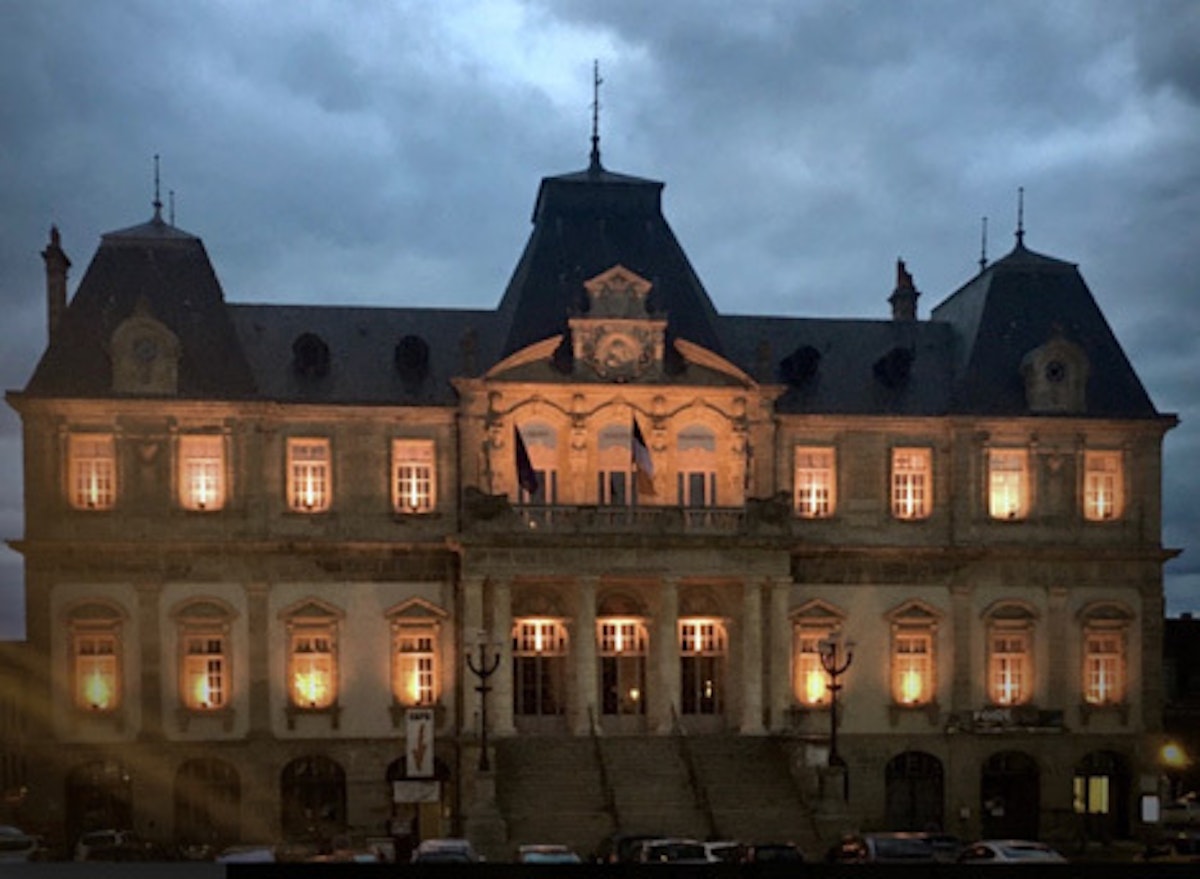
Using text overlays on classical visual imagery, Aptekar explores this power dichotomy in a frank and direct style.
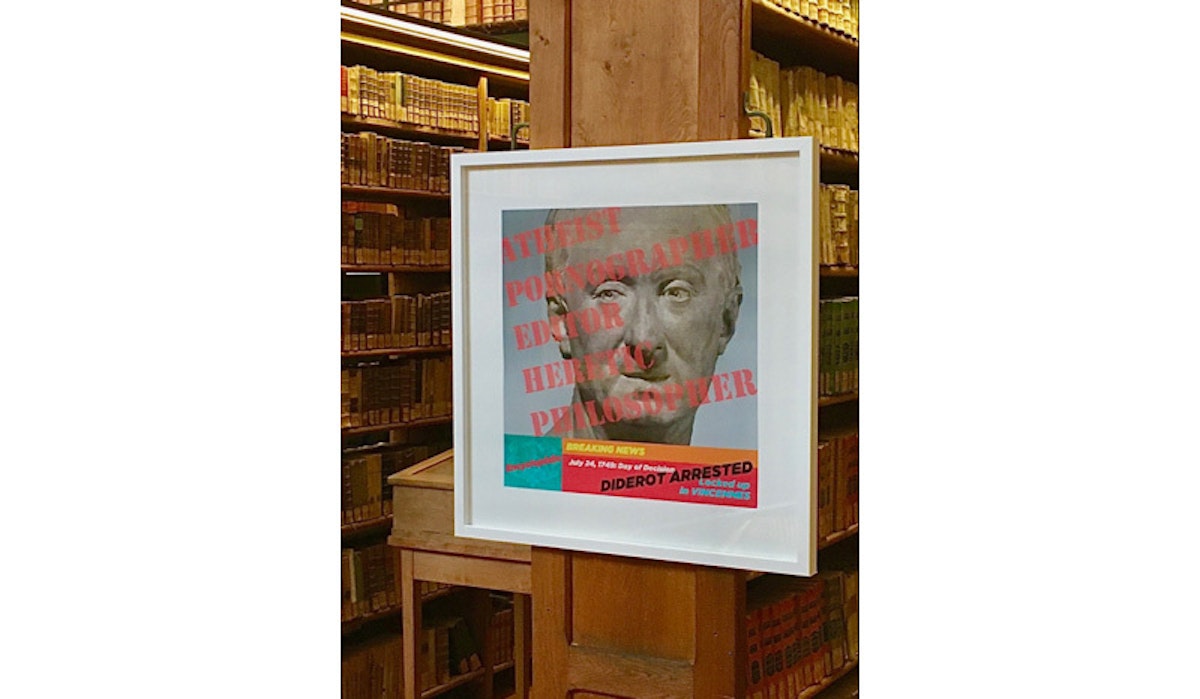
Denis Diderot (5 October 1713 – 31 July 1784), portrayed here in the poster style of a “Wanted” police photograph as an “atheist, pornographer, editor, heretic and philosopher,” earned all these epithets for his writing, the most monumental of which is his original and editorial work on L’Encyclopédie (1751-1777). This 28-volume encyclopedia was censored and unwelcomed, causing Diderot to fight those with power and money in France of his time. Censorship wears out, just as persecution and confinement. Diderot felt sometimes that he wasted over two decades of his time. And this is the work for which we remember him and to which many scholars devote their own lives on studying and remembering. In this exhibition, Aptekar sought to reinvigorate this life’s work of Diderot.
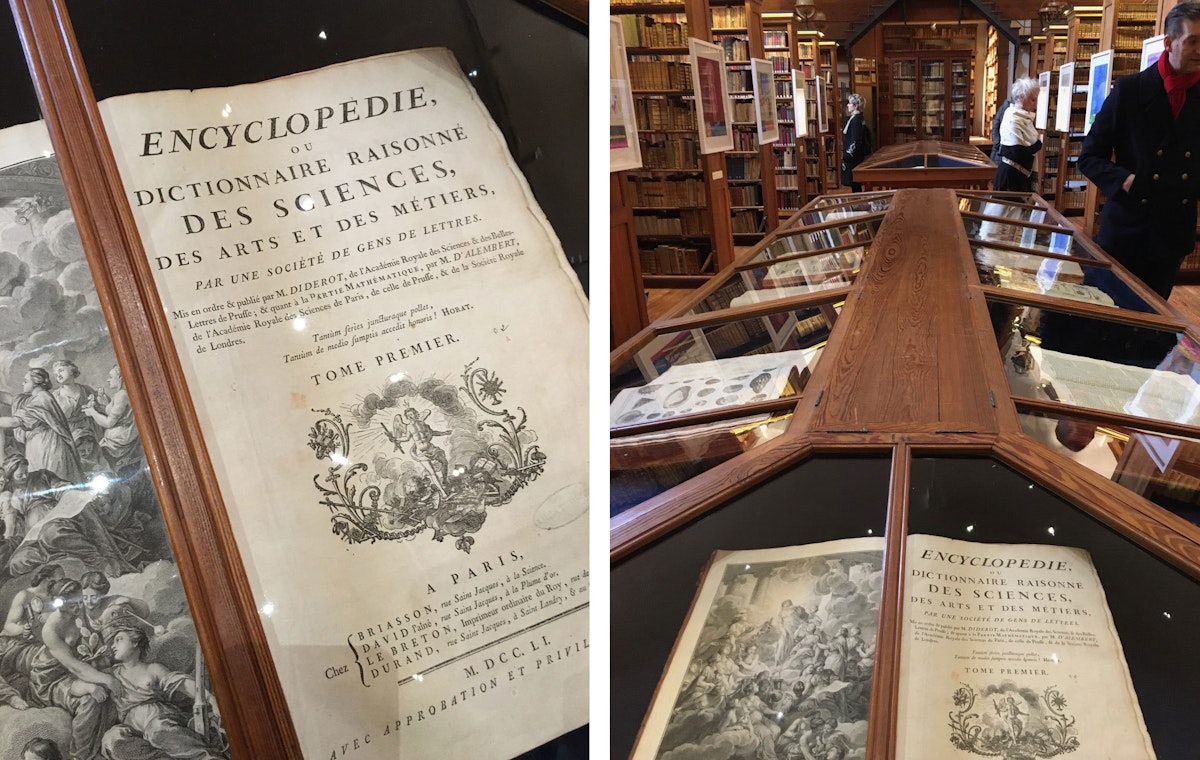
What is the power of this project, so important to Aptekar? In our November, 2019, conversation, the artist spoke of “our times” when once again, values of learning and freedom of expression are under attack. Books are suspect and knowledge, albeit now in its much larger volume and complexity, is often accessed and assessed unequally or, furthermore, rejected completely. For Aptekar, the value of wonder and curiosity is once again revolutionary, as he presents the original pages of L'Encyclopédie alongside his own digital scans that are overlaid with references to television news programming. Aptekar’s goal is to “democratize the object of encyclopedia,” reminding ourselves (the “Nous,” “Us,” in the title), why we have libraries and why they are given prominent and visible buildings in the center of our cities.
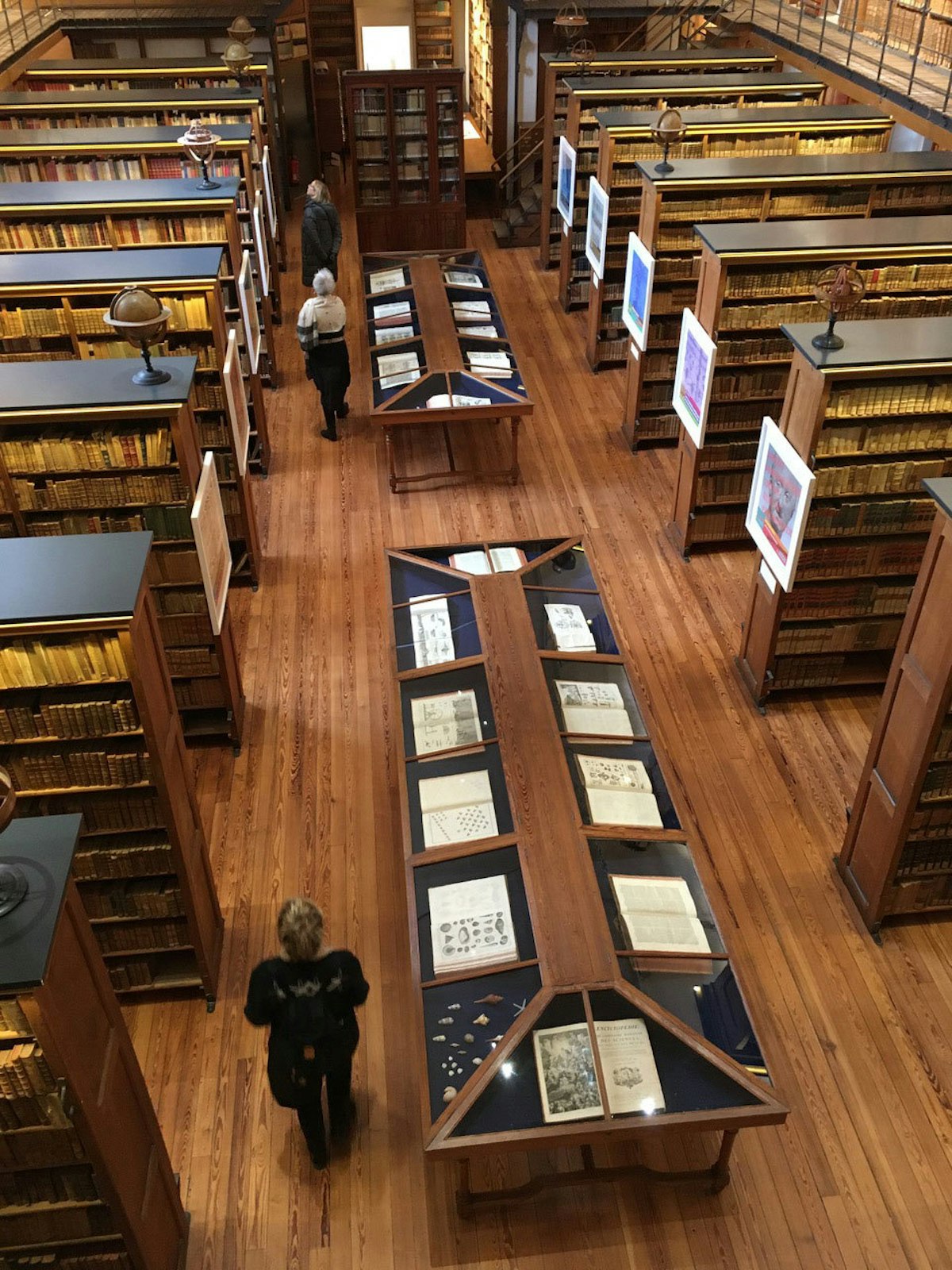
This exhibition seethes of the artist’s concern for our times. In fact, such wide angle at human history is often employed in Aptekar’s work to consider, alongside his audience, big questions about cultural, intellectual and social change; reversals and progress. Aptekar is not just celebratory of encyclopedias in general and Diderot’s in particular. He also points to the silences and omissions that have had a profound effect on the Enlightenment’s blindness toward its own colonial biases and has been haunting the project of equality, fraternity and freedom. One of the subtly, but insistently, framed, questions in this exhibition is the absence of any references in L'Encyclopédie to slavery. Are we still living with the consequences of this silence in our societies? Aptekar is not just pondering this question. As an artist, he used his freedom of expression to create a new page that tells a story of a former slave.
In this approach, of representing the past in order to change the present, Aptekar’s work has been consistent. His exhibition from 2016, Nachbarn / Neighbors, raised a question of new immigrants, and how their treatment – specifically, in contemporary Germany – cannot be asked in isolation from the past, with a hope and responsibility for a different present. I had a chance to visit Aptekar’s studio in Paris during my research for a book on hospitality in contemporary art. I saw how the artist worked on large paintings for the exhibition. Aptekar overlaid scenes from the old Renaissance paintings with a story of one Jewish family, the Carlebachs, who ultimately perished in the Holocaust. Aptekar’s multi-year engagement with the community of the German city led him to a story about German neighbors who risked their own lives to provide the Carlebachs with food when it was forbidden by the Nazis. Aptekar, in retelling of the decisions that neighbors of the past made, makes us ask ourselves: how far would I go to stop injustice done to my neighbor right here and now? During our meeting and subsequent exchanges of letters and ideas, I was deeply moved by Aptekar’s decision, as an artist, to tackle painful, often divisive, topics, without falling into despair or a critical mirroring of what his audience already knows and feels. Hence, in my book Arrested Welcome: Hospitality in Contemporary Art (University of Minnesota Press, 2020), the last chapter “Hospitality Now: Ken Aptekar,” is inspired by the story that the artist tells, within the context of his challenge to all those who are concerned with how we treat each other, including immigrants, today and how this treatment constitutes history.
Aptekar’s prints, paintings, and objects are visually present and draw his viewers in by their color contrasts and stark juxtapositions of styles and frames of reference. They also engage through contemplative time. The artist says that his work is often consciously “demanding” and requires “intellectual labor.” Similar to my own interest in writing, Aptekar is not interested in one-sided arguments, but in a difficult dialogue about a possibility of another present, here and now. He creates an intellectual environment in our politically charged times to face each other and share thoughts and feelings about what it means to be at the crossroads of “who we are” as people, collectively and personally, as neighbors, hosts and guests, friends and fellow human beings.
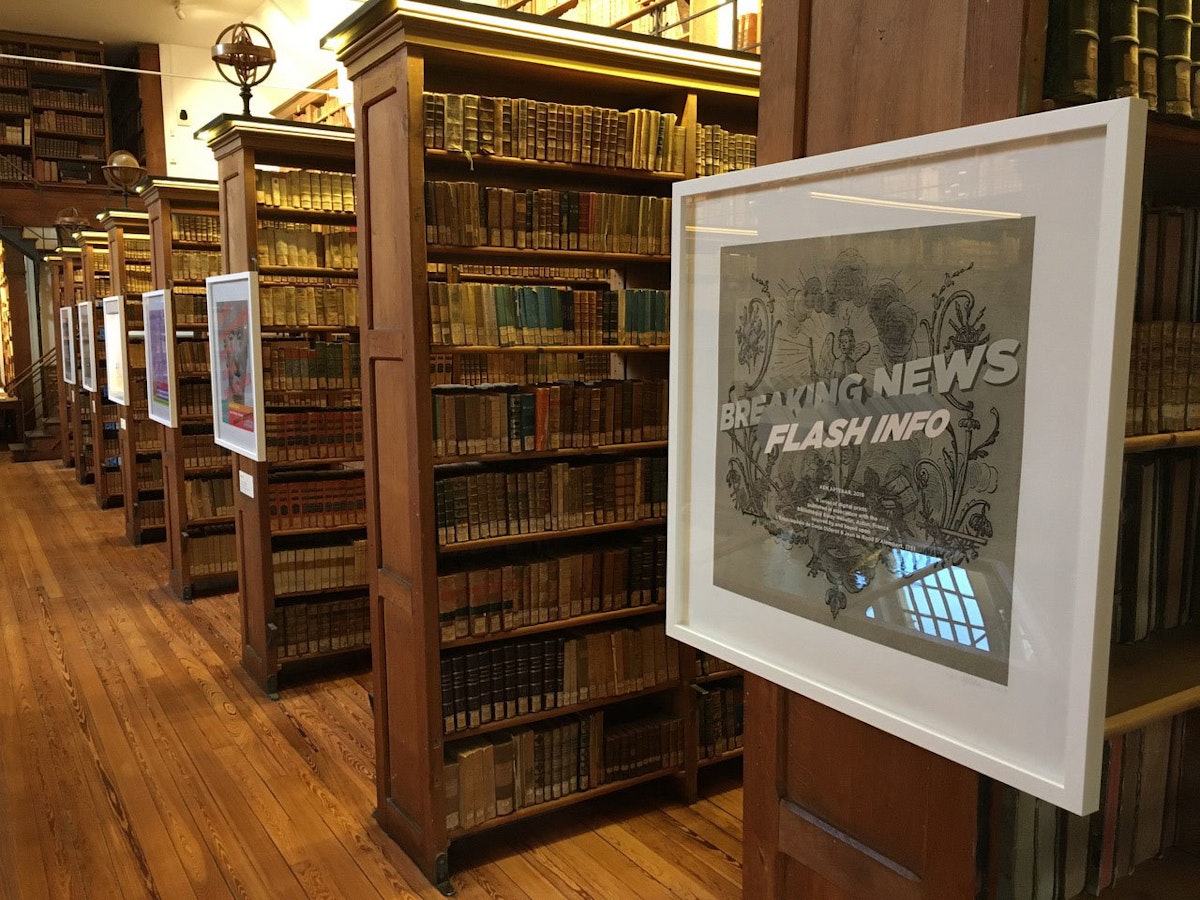
Ken Aptekar’s exhibition The Encyclopedia and Us? Works and Video by Ken Aptekar (L'Encyclopédie et Nous? Oeuvres et Vidéo de Ken Aptekar) runs through January 15, 2020, at the Bibliothèque Bussy-Rabutin in Autun, France.
Irina Aristarkhova’s book Arrested Welcome: Hospitality in Contemporary Art will be out in 2020 from Minnesota University Press.